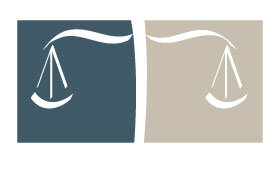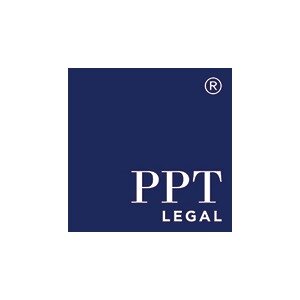Best Communications & Media Law Lawyers in Piraeus
Share your needs with us, get contacted by law firms.
Free. Takes 2 min.
List of the best lawyers in Piraeus, Greece
About Communications & Media Law in Piraeus, Greece:
Communications & Media Law in Piraeus, Greece governs the legal framework for various aspects of communication and media activities in the city. It covers a wide range of areas, including print and digital media, telecommunications, broadcasting, advertising, intellectual property rights, defamation, privacy, and more. Understanding the legal requirements and regulations in this field is crucial to ensure compliance and protect your rights.
Why You May Need a Lawyer:
There are several situations where you may require legal help in Communications & Media Law in Piraeus, Greece:
- If you are starting a media-related business, such as a newspaper, magazine, website, or broadcasting channel, you will need guidance on obtaining necessary licenses, complying with regulations, and protecting your intellectual property rights.
- If you have been accused of defamation, copyright infringement, or other media-related offenses, an attorney can help protect your interests and guide you through any legal proceedings.
- If you believe your privacy has been violated or your personal data misused by a media organization, a lawyer can assist you in enforcing your rights and seeking appropriate remedies.
- If you are facing disputes or contractual issues with media-related parties, such as advertisers, content creators, or distributors, an attorney can help negotiate and resolve these matters.
Local Laws Overview:
It is important to be aware of the key aspects of local laws that are particularly relevant to Communications & Media Law in Piraeus, Greece:
- The Greek Constitution guarantees freedom of speech and freedom of the press, subject to certain limitations such as defamation, hate speech, incitement to violence, and protection of national security.
- Greek law provides for the protection of intellectual property rights, including copyright and trademark rights, which are essential for content creators and media organizations.
- Data protection and privacy laws, in accordance with the EU's General Data Protection Regulation (GDPR), regulate the collection, processing, and transfer of personal data by media entities.
- Licensing and regulatory requirements for media organizations depend on the specific type of media activity, such as broadcasting, publishing, or telecommunications. Compliance with these regulations is necessary to operate legally.
- Defamation laws in Greece protect individuals' reputations. It is essential to be mindful of these laws when engaging in media activities to avoid potential legal consequences.
Frequently Asked Questions:
1. Can I start a media business without obtaining any licenses?
No, in order to operate legally, most media businesses in Piraeus, Greece require specific licenses or authorizations depending on the nature of the activity. Consulting with a lawyer will help you understand the necessary legal requirements.
2. What are the penalties for defamation in Piraeus, Greece?
Defamation is a criminal offense in Greece, and penalties can include fines and imprisonment. It is important to be cautious while reporting or publishing content to avoid defamatory statements.
3. How can I protect my intellectual property rights as a content creator?
To protect your intellectual property rights, it is advisable to register your creations, such as articles, photographs, or audiovisual works, with the appropriate authorities. Additionally, consulting with a lawyer can help you enforce your rights and address any infringements.
4. What are the key privacy rights I should be aware of as a media consumer?
As a media consumer, you have the right to control the collection and processing of your personal data by media organizations. You are also entitled to be informed about the purposes of data processing and have the right to rectify or delete your data if necessary.
5. How can I resolve a contract dispute with an advertiser?
In case of a contract dispute with an advertiser or any other media-related party, it is advisable to seek legal assistance. An attorney can help review the contract, negotiate a resolution, or represent your interests if litigation becomes necessary.
Additional Resources:
For further information and assistance in Communications & Media Law, you may find the following resources helpful:
- Piraeus Bar Association: The local bar association can provide a list of qualified lawyers specializing in Communications & Media Law.
- Hellenic Telecommunications & Post Commission (EETT): The regulatory authority for telecommunications and post services in Greece can provide relevant information and guidelines.
- Hellenic Copyright Organization (OPI): OPI offers resources regarding copyright protection, registration, and enforcement.
- National Council for Radio and Television (NCRTV): NCRTV oversees licensing and regulation of broadcast media in Greece.
Next Steps:
If you require legal assistance regarding Communications & Media Law in Piraeus, Greece, follow these steps:
- Identify your specific legal needs or concerns within the field of Communications & Media Law.
- Research qualified lawyers in Piraeus who specialize in Communications & Media Law. The Piraeus Bar Association can provide a list of relevant attorneys.
- Consult with selected lawyers to discuss your situation, obtain advice, and understand the potential courses of action.
- Select a lawyer who best fits your needs and budget, and proceed with engaging their services.
- Work closely with your lawyer, providing any necessary documentation or information, and follow their guidance throughout the legal process.
Lawzana helps you find the best lawyers and law firms in Piraeus through a curated and pre-screened list of qualified legal professionals. Our platform offers rankings and detailed profiles of attorneys and law firms, allowing you to compare based on practice areas, including Communications & Media Law, experience, and client feedback.
Each profile includes a description of the firm's areas of practice, client reviews, team members and partners, year of establishment, spoken languages, office locations, contact information, social media presence, and any published articles or resources. Most firms on our platform speak English and are experienced in both local and international legal matters.
Get a quote from top-rated law firms in Piraeus, Greece — quickly, securely, and without unnecessary hassle.
Disclaimer:
The information provided on this page is for general informational purposes only and does not constitute legal advice. While we strive to ensure the accuracy and relevance of the content, legal information may change over time, and interpretations of the law can vary. You should always consult with a qualified legal professional for advice specific to your situation.
We disclaim all liability for actions taken or not taken based on the content of this page. If you believe any information is incorrect or outdated, please contact us, and we will review and update it where appropriate.










